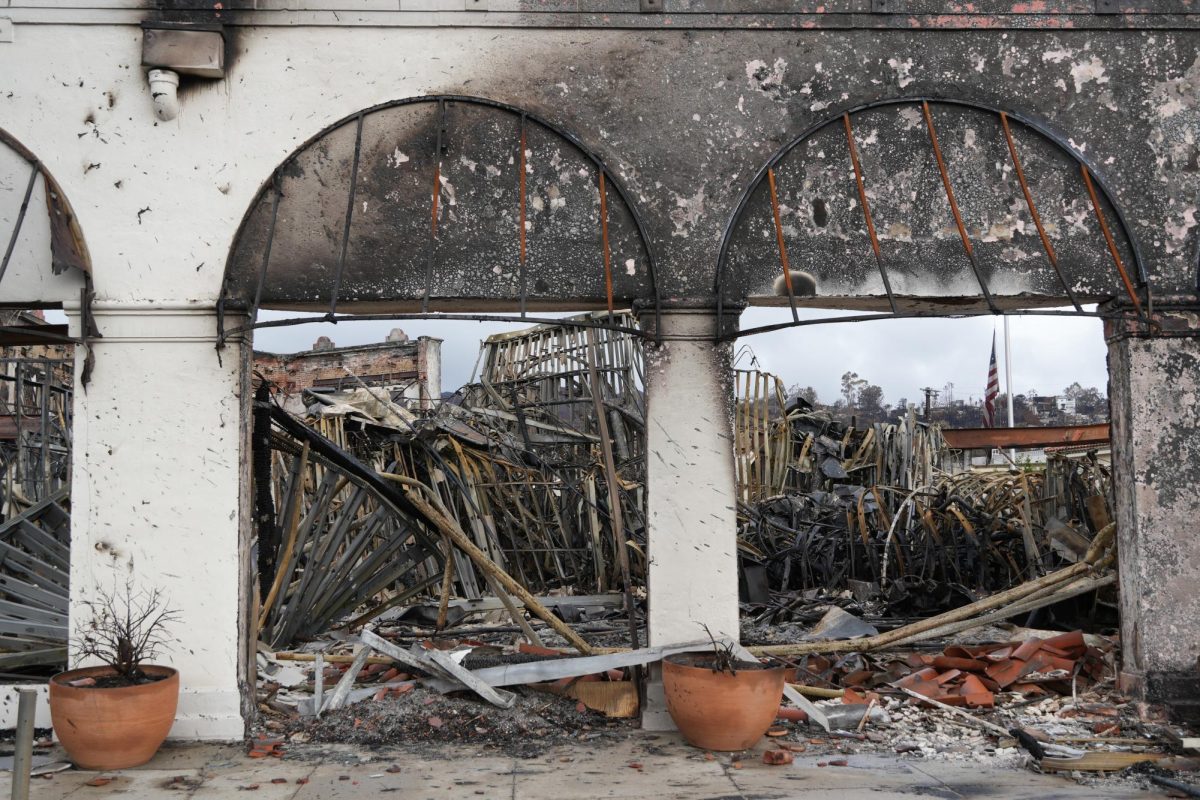By Claire ’24, Ciara ’24 and Sophia ’24
The First Amendment

Freedom of speech and freedom of the press, which are protected under the First Amendment in the Bill of Rights, have substantially shaped the United States today. Freedom of speech allows Americans to freely express any opinions without censorship or restraint by the government. Freedom of the press ensures that the media can communicate and express their beliefs as well as report any news they would like, whether or not it is reliable. Prior to the creation of the Bill of Rights, the British government had the power to censor any information published in both private and public papers, as well as statements made aloud. Although this could often eliminate propaganda and hate speech, the government also possessed the power to silence the people’s opinions if they disagreed with the government. Following the creation of the Bill of Rights, the government’s influence over what was published in news outlets and said by people in the United States was limited. The First Amendment protects five fundamental rights: speech, press, religion, assembly and the right to petition the government.
Although freedom of speech and freedom of the press can often cause controversy due to their frequent unreliability and the spread of misinformation, news outlets reserve the right to publish any information they desire under the First Amendment. Additionally, freedom of speech allows any person, regardless of whether they possess journalistic credentials, to speak about or publish anything they would like as long as it is not incitement, defamation, fraud, obscenity, child pornography, fighting words or threats. Freedom of speech is a principle that allows an individual to voice their opinions, ideas and beliefs – whatever they may be – without the fear of repercussions.
Freedom of speech and freedom of the press have historically been challenged time and time again by both the people and the government of the United States. One well-known example of this is New York Times Co. v. United States, a 1971 U.S. Supreme Court case. The case concluded that The New York Times could legally publish the then-classified Pentagon Papers without the fear of government censorship or penalty under the protection of the First Amendment.
U.S. freedom of speech
Rights protected under the First Amendment, such as freedom of speech, remain issues that are still widely debated today.
One of the biggest disputes surrounding free speech is whether there is a point at which it becomes too harmful or dangerous. For example, surveys have shown that Americans are typically in support of free speech, but that number decreases when survey respondents are asked about the use of it in certain, sometimes controversial, circumstances. A landmark survey by Knight Foundation and Ipsos showed that 91% of Americans agree that “protecting free speech is an important part of American Democracy,” but a survey conducted by the CATO Institute of Free Speech and Tolerance showed that only 59% think that “people should be allowed to express unpopular opinions in public, even those deeply offensive to other people.” Although the 1919 U.S. Supreme Court case Schenck v. United States established that free speech would not be permitted if it presented a clear and present danger to society, people still debate when free speech should be questioned.
For example, many subscribe to the belief that inflammatory speech is still protected under the First Amendment as seen in the 1969 U.S. Supreme Court case Brandenburg v. Ohio, which ruled that oppressive language is lawful as long as it doesn’t incite lawless action. Therefore, extremist groups in the United States, like white nationalists, have been given the right to justify the spread of their beliefs and instigate protests. For example, when a white nationalist protest broke out in 2017 in Virginia, their actions were ultimately deemed unlawful because of the violence between protesters, rather than the speech that targeted minorities. Henceforth, it brought about another debate regarding what it means to incite lawless action. Some have argued that the discriminatory ideas of the white nationalists were ultimately the cause of this violence. On the other hand, some maintain that the white nationalists didn’t directly tell anyone to violently act, and thus, the laws of freedom of speech were obeyed.
Many Americans have different interpretations of what the First Amendment and various U.S. Supreme Court rulings have established regarding the protection of free speech. Currently, the way free speech should be regulated among politicians and in universities are major issues in our society.
Recently, debates surrounding free speech have been increasingly present among American politicians. After fears that then-President Donald Trump’s statements on Twitter were inciting violence, Trump was permanently suspended from the platform. While Trump argued that Twitter was limiting his right to freedom of speech, Americans, including civilians and politicians, were split between arguing for or against Trump’s statements. Many attempted to both justify and oppose his actions using evidence from the First Amendment.
Furthermore, American universities and colleges have sparked discourse regarding free speech as students and administrators have advocated for limitations to help lessen discriminatory language on campus. However, some argue that universities don’t have the right to enforce policies surrounding speech on campus due to the First Amendment.
In high schools, free speech has also been a widely contested issue. For example, in 2021, high school student Brandi Levy’s case against Mahanoy Area School District in Pennsylvania over her use of profanity online in regard to a school-related issue was brought to the U.S. Supreme Court. Levy won the case on the basis of her First Amendment rights.
At Marlborough, the UltraViolet is allowed to operate with relative freedom of speech in that articles do not need to be reviewed by the administration before publication. However, in order to ensure that the newspaper embodies Marlborough’s core values and the UltraViolet’s standards, all articles are reviewed eight times by the staff and UltraViolet advisor Richard Vega prior to release.
In addition to exercising free speech rights at school, Marlborough students often make use of the First Amendment by attending protests.
“Going to a women’s rights protest in Santa Monica made me feel very empowered as a young woman,” an anonymous student said.
Since the creation of the Bill of Rights over 200 years ago, U.S. Supreme Court rulings have fought to find an answer to what speech should and shouldn’t be protected due to the importance that freedom of speech holds in American society.

Global freedom of speech
However, not every country enjoys these liberties that are so cherished in the United States. Citizens across the world are in favor of freedom of speech and expression, with 62% of the global population in support of freedom of speech in their countries, according to the Pew Research Center. However, some governments, such as those of Iran, China and North Korea, utilize vague language within constitutional laws to justify their censorship and limiting of their people.
In Iran, free speech has been a major issue, as seen in recent media surrounding the arrest and death of Mahsa Amini. It is suspected that Amini was severely beaten and died three days later in police custody. In Iran, there is a severe lack of free speech, as well as the presence of censorship, due to the unclear rules surrounding it and the morality police. The principles in the Iranian Constitution leave room for interpretation by the present bureaucrat. This leader decides whether restrictions will be forcefully maintained or not. Within the Iranian Constitution, Principle 24 states that publications and the press only have freedom of expression as long as it isn’t detrimental to the fundamental principles of Islam or the rights of the public. This principle, among many others within the constitution, has allowed for the longstanding censorship of the Iranian people. In Iran, information on televisions, radios or the Internet can be censored from the public in order to keep citizens under government control.
In China, similar vague restrictions apply surrounding the right of free self-expression. Despite the fact that the country’s constitution guarantees freedom of speech, this is not always protected. Clauses in Chinese laws, such as “protect state secrets” and “subversion of state power,” are often used to censor freedom of speech in China and justify the imprisonment of those who speak out against the government. In November 2003, the Golden Shield Project allowed the Chinese government to track and arrest citizens based on statements made over online communication mediums. Additionally, the Chinese government limits public access to media surrounding potential political movements and controversial events.
Similarly, North Korea utilizes censorship, law ambiguity and sheer fear tactics in order to limit their citizens’ freedoms. In their laws, North Korea has clauses guaranteeing the right to freedom of speech, however, in practice, there are other clauses that allow for brutal censorship instead. North Korea functions as a highly centralized totalitarian state, and thus, the government exercises power through detentions and arrests for actions such as accessing phones, computers, televisions, radios or any other form of media that isn’t sanctioned by the government. This would be considered “anti-socialist,” therefore, against the laws of North Korea. Further, in December 2020, North Korea forbade the consumption and distribution of media from the United States, South Korea or Japan. Breaking this law warrants extreme punishments such as time in a prison camp or the death penalty. Moreover, even using the South Korean dialect, whether spoken or written, can subject a person to forced labor.
Iran, China and North Korea all have their own set of laws “entitling” their citizens to freedom of expression, however, in practice, these rights are censored and restricted on account of the ambiguity surrounding them.
An internationally debated issue for years, American citizens enjoy the right to free speech, even in criticism of the government, unlike Iran, China and North Korea. But even within the United States, freedom of speech also continues to pose challenges such as potentially inciting violence or carrying discriminatory messages. Nevertheless, it remains a core American value that continues to shape our democracy.







